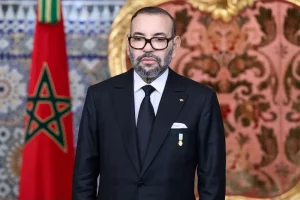
Algeria has made a resounding call for reform of the global financial system, using its platform at the 4th United Nations Conference on Financing for Development in Seville to demand fairer treatment for developing nations, particularly across Africa.
Represented by Prime Minister Nadir Larbaoui, President Abdelmadjid Tebboune delivered a strong message on international economic justice, warning that current financial mechanisms continue to deepen inequality.
He called for more equitable participation of African countries in global financial governance and denounced rating systems that he described as “penalizing and opaque.”
“Rating agencies do not reflect the realities on the ground,” Tebboune argued, pointing to structural imbalances that hinder Africa’s growth. “These systems maintain dependence rather than enabling progress.”
Tebboune also used the international stage to reaffirm Algeria’s steadfast support for the Palestinian cause.
He condemned what he described as a “war of extermination” in Gaza and urged for an immediate ceasefire and the recognition of a sovereign Palestinian state with East Jerusalem as its capital.
Despite Algeria’s own diplomatic tensions—particularly with France and regional disputes surrounding its support of the Polisario Front in Western Sahara—the North African nation has positioned itself as a model of South-South cooperation.
After successfully eliminating its external debt and stabilizing its economy, Algeria is now leveraging its financial strength to assist development across the continent.
Through its International Cooperation Agency, Algeria is mobilizing over $1 billion to support infrastructure, healthcare, and education projects in several African countries.
Officials describe this effort as a concrete manifestation of solidarity and an alternative to the often-conditional aid frameworks offered by traditional global institutions.
While Algeria continues to face criticism at home and abroad over political repression and diplomatic friction, its push for reform in international financial architecture has gained recognition among emerging economies seeking greater representation.
The message from Seville was clear: the time has come for a more just and inclusive financial order—one in which Africa is no longer a passive recipient but a powerful participant.



